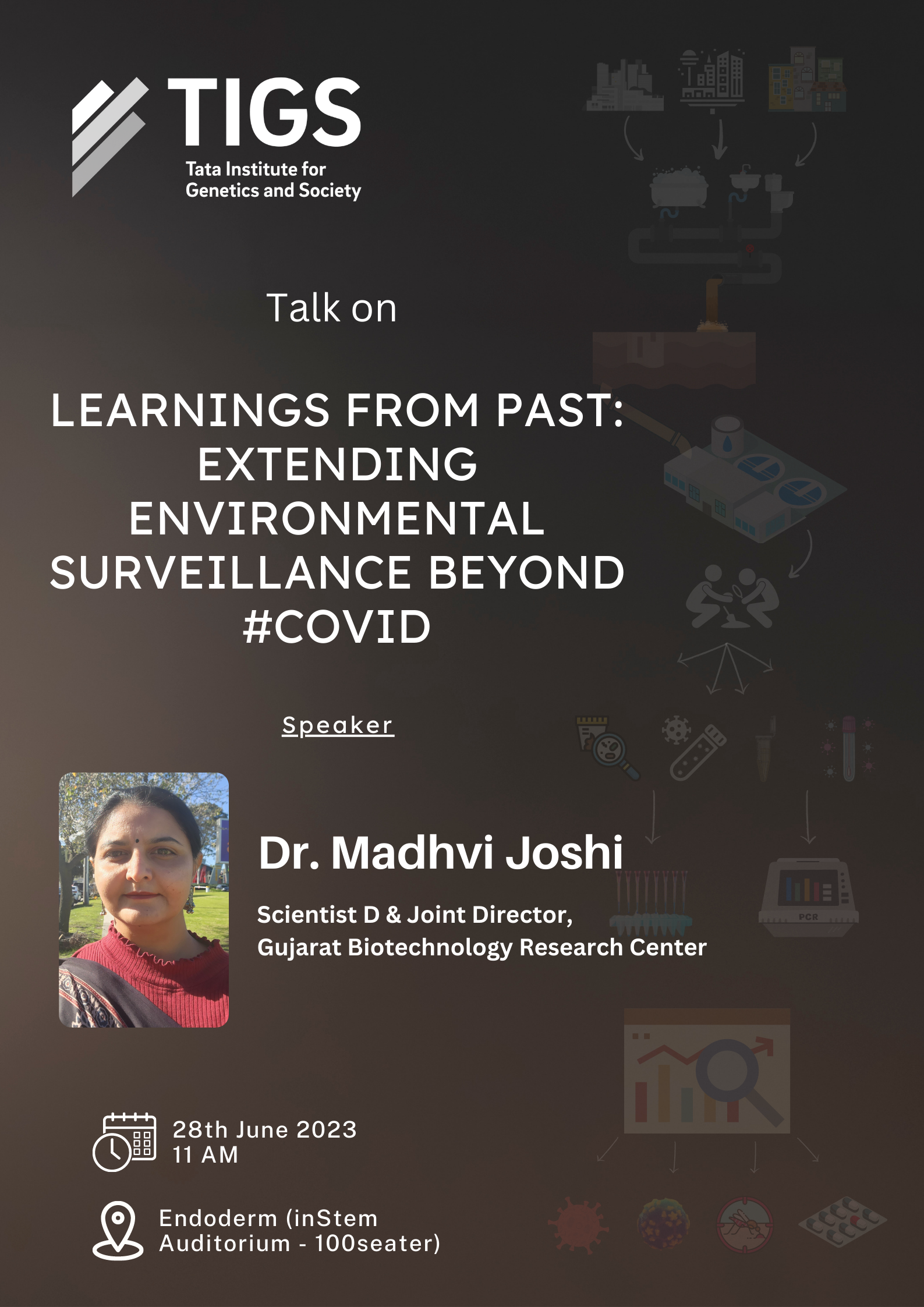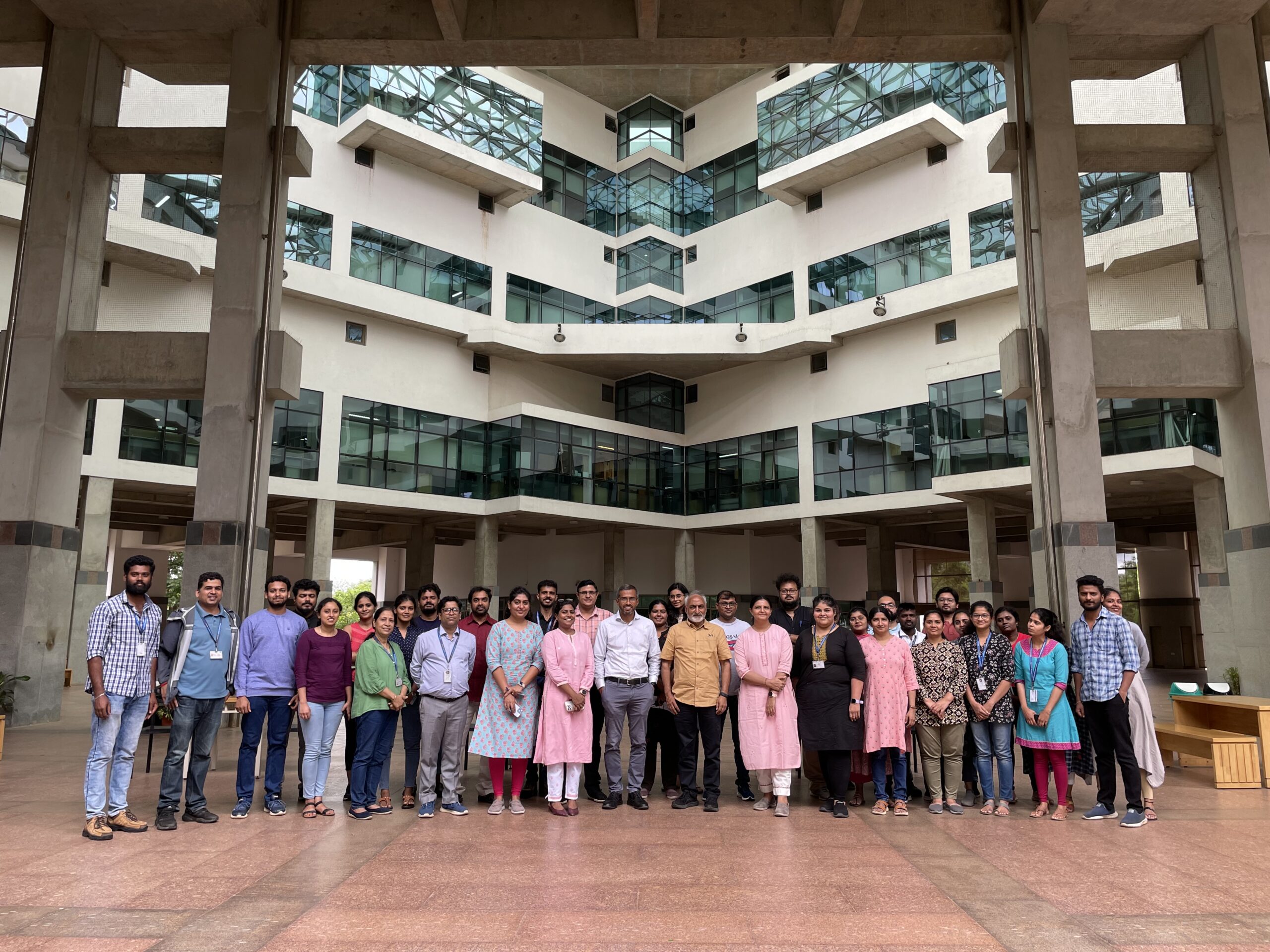We were glad to host Dr. Madhvi Joshi, Scientist and Joint Director, Gujarat Biotechnology Research Centre. Had an insightful session on wastewater based epidemiology during COVID19 and how those learnings can be used to generate baseline data for emerging contaminants (pathogens and key pollutants).
Related Posts
MoU signing with ICAR – Indian Institute of Seed Sciences (IISS)
We are pleased to host a delegation from ICAR-Indian Institute of Seed... read more
COVID-19 is airborne; Masks still essential to avoid the spread of virus, Collaborative Study reveals
In a collaborative study, it is found that, novel Coronavirus is airborne... read more
Key insights of REDRESS 2023 featured in Biospectrum India
Rare Genetic Diseases Research Summit (REDRESS) 2023, an indigenous and recurrent platform... read more
TIGS Annual Report 2022
Annual Report 2022 Click on the above image or here to view TIGS... read more
Indian Academy of Sciences launch symposium for the release of a special issue on the ‘Rare Genetic Diseases Landscape in India’
Recently the Journal of Biosciences, Indian Academy of Sciences held a launch... read more
MoU Signing with Gujrat Biotechnology Research Centre
TIGS and Gujarat Biotechnology Research Centre (GBRC), Department of Science and Technology, Government... read more
Launch of BeST cluster OneHealth Bengaluru City Consortium
On 3rd March 2023, over 30 organisations in Bengaluru came together focusing... read more
MoU signing with DBT – National Institute for Animal Biotechnology
TIGS and DBT - National Institute of Animal Biotechnology (NIAB), Hyderabad got... read more
‘Not Done With Covid Pandemic Yet’: Experts Say Future Depends On New Variants, Need to be Watchful
“We should still wait to call the Covid pandemic has reached its... read more
From sewer to safety: Top scientist moots wastewater monitoring in new STPs
Dr. Rakesh Mishra, Director, TIGS speaks to the Hindu Hyderabad on waste... read more



